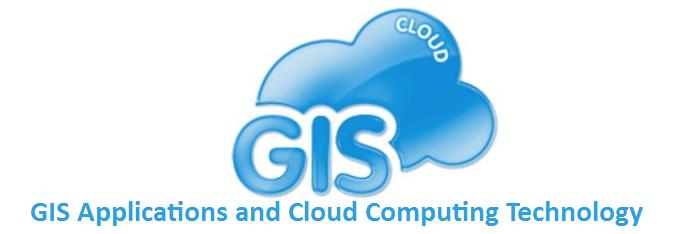GIS Applications and Cloud Computing Technology
 GIS applications are compute as well as data intensive. We are using GIS technology as over decades and spatial and non-spatial data analysis are key functions of GIS data analysis. GIS data is collected from various advance sources and technologies as well (ex. remote sensing). So due to the depending upon the purpose of different applications size of the GIS data grow in large enough, and it is very difficult to handle these data to single organization and so tedious to manage these important GIS data. Also functionalities, operations and services of GIS data are geographically as well as logically distributed. In GIS applications spatial data analysis is complex in nature.
GIS applications are compute as well as data intensive. We are using GIS technology as over decades and spatial and non-spatial data analysis are key functions of GIS data analysis. GIS data is collected from various advance sources and technologies as well (ex. remote sensing). So due to the depending upon the purpose of different applications size of the GIS data grow in large enough, and it is very difficult to handle these data to single organization and so tedious to manage these important GIS data. Also functionalities, operations and services of GIS data are geographically as well as logically distributed. In GIS applications spatial data analysis is complex in nature.
Globally sharing, collaborating GIS application outputs among different users, reasonable (low cost) and scalable cloud computing platform is most important. Cloud computing is dynamically scalable platform. Due to the computational capability and scalability of cloud platform, GIS applications are easily moved on it. Also this cloud platform provides broad spectrum of GIS services to the end users over the previous conventional GIS applications.
Cloud computing technology provides on demand services and products. This technology is important to solve and overcome the challenges of GIS applications.
Cloud computing solutions are useful in GIS applications in following way:
- Cloud commuting is very useful advance technology in several fields including GIS
- Its dynamic scalability and low or zero level investment is beneficial to small, medium scale enterprises and software users.
- GIS is one of the advance stream of science including large set of data processing, so cloud computing is useful for parallel processing of data, and important for storing and sharing outputs and results with end users.
- Flexibility is one of the characteristics when GIS application is on cloud platform and it is vital because end user may be located at any part of the world and can able to access this GIS service using internet and GIS service account.
- Using this cloud hosting platform can possible to provide analysis service to end user. GIS application hosted on cloud, so can possible to provide GIS service to any end user in real time.
- Availability in real time is unique feature. In cloud computing technology uses virtualize nodes, it can possible to provide instant numerous and unrestricted access as per user requests.
- Cloud computing platform provides dynamic configuration. As per requirement of GIS end user, virtual machines can be configured and provided service accordingly.
- It can provide on demand access and provides computer nodes immediately as per request.
- Cloud computing techniques provides large space for storing and functioning of GIS data
- It can provide global collaboration platform to GIS end users, researchers and analysts. Cloud virtual machines with Public IP’s can accessible from anywhere in world.
- Costing depends upon as per use and requirement in cloud computing platform. So need not required initial large amount of investment.
- Virtual machines are hosted on cloud platform. And it’s hardware continuously upgraded by service provider. And this machine can possible to migrate on another hosting platform if hardware failures.
- This cloud platform is very beneficial rather than the traditional grid and cluster method in GIS applications.
- GIS application on cloud computing platform, though it is conceptual framework, it is vital in meting high level of demands in GIS applications and mainly improve usability, scalability and accessibility of GIS resources.
So we can conclude that GIS cloud is next generation platform that can manage location information.
